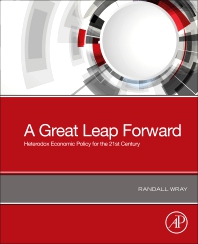
Publications
Uncertainty and the Institutional Structure of Capitalist Economies
In this new working paper, Distinguished Scholar Hyman P. Minsky points out that capitalism in the United States is an evolving construct that recently entered a new stage: "money manager" capitalism. In money manager capitalism, nearly all businesses are organized as corporations, pension and mutual funds are the predominant owners of financial assets, and managers of these funds are judged solely on the total return on fund assets (dividends and interest plus appreciation in share value). One consequence of such a structure is the predominance of short-run considerations in decision making.
Public tolerance for uncertainty is limited. During the New Deal era it led to the creation of institutions and arrangements to create transparency in both financial markets and corporate governance; for example, crop insurance set floors to farmers' incomes and deficits run by the federal government set floors to aggregate profit flows. However, the focus of money manager capitalism on short-run returns and uncompromised profit margins has increased economic uncertainty at the firm and plant levels through the chronic need to downsize overhead and reduce variable costs. These activities have unraveled the traditional relationships between firm and worker and increased economic insecurity among employees.
Minsky asserts that existing institutions and programs cannot contain this uncertainty, and that new arrangements must be created to offset the effects on "losers" in the structure of money manager capitalism. He suggests that full-employment programs analogous to certain New Deal programs (e.g., the Work Progress Administration and the Civilian Conservation Corps) should be considered to meet this goal.

